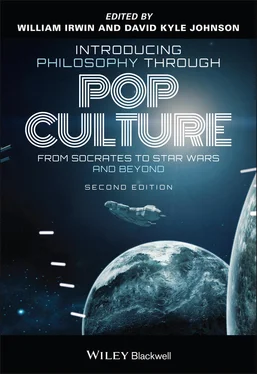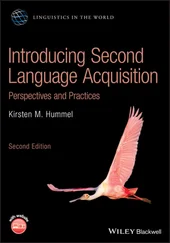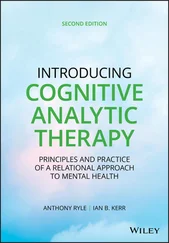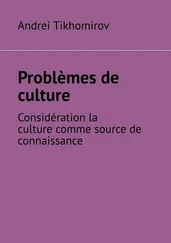Beliefs based on Adama's true lie about Earth are similar to Helo's true belief based on a false justification. Starbuck believes:
1 Adama knows the location of Earth.
This belief obviously implies:
1 Earth exists.
It's arguable that Adama's public testimony that he knows the location of Earth, as well as his private assurances to Starbuck in “Kobol's Last Gleaming, Part 1,” would be a proper justification for belief (c). It's reasonable to believe, as Adama claims, that he has access to privileged classified information as a “senior commander” in the Colonial fleet. Hence, Starbuck is justified in believing that Earth exists based on his testimony despite the fact that she doesn't realize that he is lying to her.
Even though Adama lies about knowing Earth's location and doesn't believe in its existence, it later becomes evident that Earth does exist. Starbuck discovers this for herself in the Tomb of Athena and after apparently journeying to Earth (“Home, Part 2”; “Crossroads, Part 2”). But Gettier would be quick to point out that, before these events, Starbuck holds a true belief (d) based on a false justification (c). Therefore, her true justified belief in Earth isn't really knowledge, until Adama's lie is no longer the primary justification for her belief.
“I'm Not a Cylon! … Maybe, but We Just Can’t Take That Chance”
The Gettier problem is one of many puzzles in epistemology, the branch of philosophy concerned with the nature of knowledge. It's difficult to tell not only when one has knowledge but also when one's beliefs are justified. The contemporary philosopher Alvin Goldman offers a theory of justification known as reliabilism , which proposes that a belief is justified when it's produced by a reliable process. 3 Sense experiences, memories, deduction, and induction are typical examples of generally reliable belief‐forming processes. Each of these processes, however, has a different level of reliability. Induction, for example, is less reliable than deduction. And the reliability of a belief‐forming process can vary based on one's situation. Sight is a reliable belief‐forming process, yet beliefs based on sight are more reliable for close objects observed in well‐lit conditions than for distant objects observed in poorly lit conditions.
One interesting aspect of reliabilism is that it doesn't require a person to know s/he's using a reliable process to be justified in their beliefs. If a young non‐philosopher forms their beliefs based on the five senses, s/he's justified in those beliefs even if s/he never reflects upon the reliability of the senses. This has the desirable consequence of classifying many beliefs held by children, animals, and epistemically unreflective persons as justified.
In Battlestar Galactica , some typical belief‐forming processes aren't as reliable as they are for us. Sight sometimes leads people to believe they're seeing a human being when they're actually seeing a Cylon robotic replica of a human. While people are usually correct when they believe they see a human, most would believe they see a human regardless of whether it's actually a Cylon. So sight isn't a reliable process for judging between humans and Cylons, even though it's a reliable process for forming other types of beliefs. 4
Memory is another less dependable belief‐forming process. Boomer can't remember that she sabotaged Galactica 's water tanks (“Water”) and, until her Cylon nature is revealed to her, her memories thoroughly convince her that she's human, her parents are Katherine and Abraham Valerii, and her family died on Troy. Yet these beliefs couldn't be further from the truth. She doesn't give up these beliefs until confronted by numerous copies of herself aboard a Cylon baseship, and even then her initial reaction is disbelief (“Kobol's Last Gleaming, Part 2”). Similarly, Baltar wonders whether he might be a Cylon, and thus doubts whether he can trust his memories (“Torn”). Colonel Tigh, Sam Anders, Chief Tyrol, and Tory Foster are also deceived by their memories and are unaware of their actual Cylon nature (“Crossroads, Part 2”). The revelation, in particular, of Tigh and Anders's Cylon identity is truly shocking, as they're among the most adamantly anti‐Cylon members of the fleet.
On the other hand, some unusual belief‐forming processes are reliable in Battlestar Galactica , such as Baltar's visions of Number Six. While Six's advice is often cloaked in manipulative games and sarcasm, it frequently turns out to be a reliable way to form beliefs and accomplish desirable goals. Six draws Baltar's attention to a strange device on the Dradis console, and this leads him to “identify” Aaron Doral as a Cylon. But Baltar hasn't yet created his “mystic Cylon detector” and just makes up some techno‐babble to convince Tigh that Doral is a Cylon so he can have an excuse to bring up the “odd device.” It's disturbing when Tigh abandons Doral on Ragnar Station until it's revealed that Baltar was right all along (“Miniseries”). Six also encourages Baltar to test Boomer to see if she's a Cylon (“Flesh and Bone”); tells him to choose a target for the assault on a Cylon tylium refinery by faith , which turns out to be accurate (“The Hand of God”); helps him attain both the vice‐presidency and the presidency (“Colonial Day”; “Lay Down Your Burdens”); and reveals Hera's identity to him (“Exodus, Part 2”).
Visions resulting from chamalla extract are also a reliable process for belief formation. Roslin's visions foresee her encounter with Leoben (“Flesh and Bone”) and her leadership role in bringing the Colonials to Earth (“The Hand of God”). A chamalla‐tripping oracle tells D'Anna/Three that she'll hold the Cylon‐human hybrid Hera and experience love for the first time (“Exodus”); another oracle knows about Starbuck's upbringing and that Leoben – or at least a vision of him – will be coming for her (“Maelstrom”).
Returning to epistemology, does reliabilism suggest that Adama's testimony is an appropriate justification for believing in Earth? Enlightenment era philosophers, such as David Hume (1711–1776), are critical of justifications based on testimony for this kind of issue. Hume claims testimony is only as reliable as experience suggests, and there are true claims that would be difficult to justify based on testimony:
The reason, why we place any credit in witnesses and historians, is not derived from any connection , which we perceive a priori , between testimony and reality, but because we are accustomed to find a conformity between them. But when the fact attested is such a one as has seldom fallen under our observation, here is a contest of two opposite experiences; of which the one destroys the other, as far as its force goes, and the superior can only operate on the mind by the force, which remains. The very same principle of experience, which gives us a certain degree of assurance in the testimony of witnesses, gives us also, in this case, another degree of assurance against the fact, which they endeavor to establish; from which contradiction there necessarily arises a counterpoise, and mutual destruction of belief and authority. 5
Hume believes that the ultimate basis for belief in anything is our own sensory experiences. We should trust other people's testimony only because experience suggests that testimony is typically accurate. Yet, even in everyday situations, testimony falls considerably short of absolute accuracy. It's sometimes unreliable because people are dishonest, as when Felix Gaeta claims he saw Baltar voluntarily sign the execution order for over 200 innocent colonists (“Crossroads, Part 2”); or because people are simply incorrect in their testimony, as when Tyrol sincerely tells Tigh that he's not a Cylon (“Resistance”).
Читать дальше












